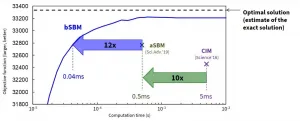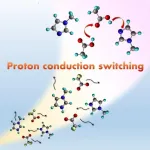New biomarker may predict which pancreatic cancer patients respond to CD40 immunotherapy
Systemic inflammation, not T cell activation, was associated with patient outcomes
2021-02-04
(Press-News.org) PHILADELPHA--Inflammation in the blood could serve as a new biomarker to help identify patients with advanced pancreatic cancer who won't respond to the immune-stimulating drugs known as CD40 agonists, suggests a new study from researchers in the Abramson Cancer Center of the University of Pennsylvania published in JCI Insight
It is known that pancreatic cancer can cause systemic inflammation, which is readily detectable in the blood. The team found that patients with systemic inflammation had worse overall survival rates than patients without inflammation when treated with both a CD40 agonist and the chemotherapy gemcitabine.
The purpose of CD40 agonists is to help "push the gas" on the immune system both by activating antigen-presenting cells, such as dendritic cells, to "prime" T cells and by enhancing anti-tumor macrophage activity. However, CD40 agonist-combination approaches only shrink tumors in a little more than half of patients, past studies have shown. Now, identifying systemic inflammation as a mechanism of resistance could help guide treatment decisions and future studies, as well as offer up new targets for researchers to explore.
"CD40 is a really exciting target, especially in pancreatic cancer, where agonistic monoclonal antibodies have shown a lot of promise, but we know that these agonists still face obstacles in certain patients that weaken the drug's intended effects," said lead author Max M. Wattenberg, MD, a clinical instructor of Medicine in the division of Hematology-Oncology in the Perelman School of Medicine at the University of Pennsylvania. "We believe we have not only identified a potentially robust biomarker, but also important players in the immune system we didn't see before that may drive mechanisms of resistance."
Pancreatic ductal adenocarcinoma (PDAC) is the most common type of pancreatic cancer and currently the third leading cause of cancer deaths in the United States. Despite the fact that it only accounts for about three percent of new cancer cases, it is responsible for more than seven percent of all cancer deaths, and just 10 percent of patients survive five years with the disease.
The researchers analyzed blood samples from 22 patients with PDAC to gain insight into the immunological mechanisms underway after treatment with chemoimmunotherapy. The team observed a depletion of B cells, monocytes, and dendritic cells as well as activation of CD4+ T cells over eight days in most patients. Surprisingly, a closer look revealed no consistent evidence of CD8+ cell activation and no association between T cell activation and outcomes. These findings challenge preclinical studies that have suggested that T cell activation sparked by CD40 agonists would associate with outcomes.
Rather, overall survival outcomes were associated with a measurable characteristic in the patients' blood found before treatment: systemic inflammation. Systemic inflammation is marked by the increased presence of neutrophils, inflammatory cytokines (including IL-6 and IL-8) and acute phase reactants in the peripheral blood, and is a known symptom of pancreatic cancer and other cancer types.
Patients with systemic inflammation before treatment with a CD40 agonist and gemcitabine, the authors report, had a median overall survival of 5.8 months versus 12.3 months for patients without inflammation from the start of treatment.
Also surprising, the data suggest that gemcitabine chemotherapy may eliminate monocytes and dendritic cells, which are fundamental to facilitating T cell immune responses. However, the team has previously shown that a CD40 agonist can sensitize PDAC to gemcitabine chemotherapy, and thus, T cells may not always be needed for successful outcomes with treatment using CD40 agonists in combination with chemotherapy.
"These latest findings support the fact that inflammation seems to place the immune system at a disadvantage and in doing so prevents the ability of immune therapies to work," said senior author Gregory L. Beatty, MD, PhD, an associate professor of Hematology-Oncology at Penn's Perelman School of Medicine. "Next, we're interested to learn how to pair a T cell immune response with a CD40 agonist, so we are studying combinations that will help make the inflammatory response less suppressive and the components of the immune system more capable of triggering a T-cell response."
INFORMATION:
Penn co-authors on the study include Veronica M. Herrera, Michael A. Giannone, Whitney L. Gladney, and Erica L. Carpenter.
ELSE PRESS RELEASES FROM THIS DATE:
2021-02-04
This study is the first randomised control trial to rigorously test a sequential approach to treating comorbid PTSD and major depressive disorder.
Findings from a trial of 52 patients undergoing three types of treatment regime - using only Cognitive Processing Therapy (CPT), using Behavioural Activation Therapy (BA) with some CPT, or CPT with some BA - found that a combined treatment protocol resulted in meaningful reductions in PTSD and depression severity, with improvements maintained at six-month follow-up investigations.
"We sought to examine whether a protocol that specifically targeted both PTSD and comorbid ...
2021-02-04
TOKYO --Toshiba Corporation (TOKYO: 6502) and Toshiba Digital Solutions Corporation (collectively Toshiba), industry leaders in solutions for large-scale optimization problems, today announced the Ballistic Simulated Bifurcation Algorithm (bSB) and the Discrete Simulated Bifurcation Algorithm (dSB), new algorithms that far surpass the performance of Toshiba's previous Simulated Bifurcation Algorithm (SB). The new algorithms will be applied to finding solutions to highly complex problems in areas as diverse as portfolio management, drug development and logistics management. ...
2021-02-04
Borderline Personality Disorder, or BPD, is the most common personality disorder in Australia, affecting up to 5% of the population at some stage, and Flinders University researchers warn more needs to be done to meet this high consumer needs.
A new study in the Journal of Psychiatric and Mental Health Nursing (Wiley) describes how people with BPD are becoming more knowledgeable about the disorder and available treatments, but may find it difficult to find evidence-based help for their symptoms.
The South Australian psychiatric researchers warn these services are constrained by stigma ...
2021-02-04
Researchers at Flinders University are working to remedy this situation by identifying what triggers this chronic pain in the female reproductive tract.
Dr Joel Castro Kraftchenko - Head of Endometriosis Research for the Visceral Pain Group (VIPER), with the College of Medicine and Public Health at Flinders University - is leading research into the pain attached to Dyspareunia, also known as vaginal hyperalgesia or painful intercourse, which is one of the most debilitating symptoms experienced by women with endometriosis and vulvodynia.
Pain is detected by specialised proteins (called ion channels) that are present in sensory nerves and project from peripheral organs to the central ...
2021-02-04
Researchers from the international BASE collaboration at CERN, Switzerland, which is led by the RIKEN Fundamental Symmetries Laboratory, have discovered a new avenue to search for axions--a hypothetical particle that is one of the candidates of dark matter particles. The group, which usually performs ultra-high precision measurements of the fundamental properties of trapped antimatter, has for the first time used the ultra-sensitive superconducting single antiproton detection system of their advanced Penning trap experiment as a sensitive dark matter antenna.
If our current understanding of cosmology is correct, ordinary "visible" matter only ...
2021-02-04
When health researchers ask pregnant women about their alcohol use, expectant women may underreport their drinking, hampering efforts to minimize alcohol use in pregnancy and prevent development of fetal alcohol spectrum disorders (FASD) in children.
In a recently published study in Alcoholism: Clinical & Experimental Research, University of New Mexico scientists found that pregnant women's reporting of their own risky drinking varies greatly depending on how key questions are worded.
Most women know that alcohol use during pregnancy may harm their unborn child - and that leads to fear of being ...
2021-02-04
Genetics contributes to the risk of developing Alzheimer's disease, and the APOE gene is the strongest genetic risk factor, specifically the APOE4 allele. However, it has been known for a while that the risk due to the APOE4 allele differs considerably across populations, with Europeans having a greater risk from the APOE4 allele than Africans and African Americans.
"If you inherited your APOE4 allele from your African ancestor, you have a lower risk for Alzheimer disease than if you inherited your APOE4 allele from your European ancestor," said Jeffery M. Vance, M.D., Ph.D., professor and founding chair of ...
2021-02-04
ATLANTA - FEBRUARY 4, 2021 - Cancer ranks as a leading cause of death in every country in the world, and, for the first time, female breast cancer is the most commonly diagnosed cancer, overtaking lung cancer, according to a collaborative report, Global Cancer Statistics 2020, from the American Cancer Society (ACS) and the International Agency for Research on Cancer (IARC). Data show that 1 in 5 men and women worldwide develop cancer during their lifetime, and 1 in 8 men and 1 in 11 women die from the disease.
The article describes cancer incidence and mortality at the global level and according to sex, geography, ...
2021-02-04
Niigata, Japan - Researchers from the Graduate School of Science and Technology at Niigata University, Japan along with their collaborators from Tokyo University of Science (Japan), Yamagata University (Japan) and University of Regensburg (Germany) have published a scientific article which enhances clarity on the understanding of proton conduction mechanism in protic ionic liquids. The findings which were recently published in The Journal of Physical Chemistry B sheds light on the transport of hydrogen ions in these liquids, which opens new avenues for the development of novel energy generation and storage devices.
With ...
2021-02-04
Scientists have found genetic differences between bats killed by white-nose syndrome and bats that survived, suggesting that survivors rapidly evolve to resist the fungal disease, according to a Rutgers-led study with big implications for deciding how to safeguard bat populations.
White-nose syndrome has killed millions of bats in North America since 2006, following its introduction from Europe. The syndrome, caused by the fungal pathogen Pseudogymnoascus destructans, is arguably the most catastrophic wildlife disease in history. It has led to unprecedented declines in many North American bat species, including the little brown bat (Myotis lucifugus).
"Our finding that little brown bat populations have evolved, which could be why they survived, has large implications for ...
LAST 30 PRESS RELEASES:
[Press-News.org] New biomarker may predict which pancreatic cancer patients respond to CD40 immunotherapy
Systemic inflammation, not T cell activation, was associated with patient outcomes


